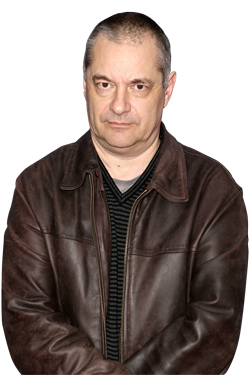
By any standard, Jean-Pierre Jeunet, whose latest film, Micmacs, opens this week, is among the most successful French filmmakers of all time, having had runaway critical and financial hits with films such as Amélie, A Very Long Engagement, Delicatessen, and The City of Lost Children (the last two co-directed with Marc Caro). Micmacs is very much in the vein of Jeunet’s other work — it’s the story of a man who decides to take elaborate and often comical revenge on two competing weapons manufacturers, often with complicated and handmade contraptions. Jeunet sat down with Vulture during a recent visit to New York.
You’ve described your films as all being about orphans battling monsters. I couldn’t help but notice that Micmacs was the same — a wounded man who lost his father to a land mine fights against the weapons manufacturers who built the mine.
Yes, it’s true. For some reason, I am drawn to this idea. You know, I was supposed to make Life of Pi for awhile, and it was the same thing — the monster was a tiger this time. And I didn’t even write that — it was a novel.
With a film like Micmacs, did you get any criticism that you had made a very playful and cartoonlike film about a very serious subject?
Not so much. I was a little concerned about that, to be honest with you. And I was concerned about finding the right balance, between the slapstick, cartoon aspect and the more serious aspect. But, you know, The Great Dictator, Dr. Strangelove … these are good examples that prove you can do a comedy with something serious. In fact, while we were researching the film, I actually thought, Oh, I could make a serious film with that. But it was too late, I had already started to make this one; it had been written.
You’ve been criticized in the past for running away from reality. For example, many felt the Paris we see in Amélie is a very fake one.
Of course! I worked very hard to create that fake Paris! [Laughs.] You have so many realistic movies nowadays, and I’m just not that interested in that as a director. As a spectator, sometimes I love realistic movies. But I prefer to modify reality. And we do actually have a tradition of that in France. We had poetic realism in the forties, with Marcel Carne, Jacques Prevert, etc. I’m trying to follow in that tradition. Maybe it’s because I started with animation — like Terry Gilliam or Tim Burton, we like to control everything. Kurosawa used to say, “If you take one frame of a film, it has to be like a painting.” I agree with that.
You occupy a very unique place in French cinema today. Do you think others resent your success?
I don’t feel French, to be honest with you. I feel international. On the other hand, my films are very French, because they’re set in places like Paris and I use French casts and crews. But what’s important for me is that I have the freedom to do what I want. And that’s the reason I shoot in France. I could have a much bigger audience if I made movies in English and in Hollywood. But in France, by law, the director has final cut over the film. If American directors had any idea how much freedom we have in France, they would apply for political asylum. I would like one day to make a film with American actors, but a French production. I am thinking about that.
So, how did working on a Hollywood production like Alien Resurrection change you? You had wanted to make Amélie for a long time — did your vision of the film change as a result of your American experience?
I was starved for freedom. And when I came back to Paris after twenty months of working in this suburb, which was L.A., I thought, Wow, what a beautiful city! It was like the first time I had come to Paris when I was a teenager. So I decided to cheat and show the Paris in my imagination. And I did learn some things making Alien Resurrection. Sometimes, when the studio suggested something in editing, it would actually be intelligent and reasonable — it wasn’t always the studio being stupid. Sometimes they ask you something silly, of course. I do some test screenings now, even in France, and I copy the American system. Test screenings are important to get a sense of what people understand and what they don’t. But, the big difference is … I have the power to say, “I don’t care.” I get to make the final decisions. That is a huge difference.





